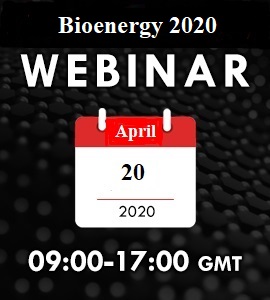Liqun Jiang
Shandong University, Qingdao, 266237, China
Title: Unlocking the limitaiton of wastewater on algal viability and biomass accumulation with phytohormone
Biography
Biography: Liqun Jiang
Abstract
Wastewater has historically been seen as an efficient and economically alternative medium for microalgal biofuels, however, algae currently suffered from low viability and biomass productivity and required pretreatment of wastewater. Anaerobic digestion of kitchen waste (ADE-KW) was characterized as high ratio of nitrogen and phosphorus and contained ample bacteria inside. To optimize treatment methods, here, phosphate supplement, phytohormone GA3 addition and sterilization were individually or interactively employed to promote biomass production of Chlorella SDEC-11 from ADE-KW. Phosphate supplement slightly enhanced biomass production, had no impact on lipid accumulation, and trigged bacterial bloom. Compared to ADE-KW control, sterilized ADE-KW obtained less biomass, while GA3 increased biomass concentration by 1.8 times and improved lipid productivity to the same level of BG11, without bacterial bloom occurring. GA3 also decreased the polyunsaturated fatty acid C18:3 to less than 10% and matched the EN 14214 biodiesel standard. Considering the interactions between nutrient, phytohormone and sterilization, phosphate hindered the promotion of GA3 on algae in ADE-KW, concluding from less biomass when adding P and GA3 simultaneously than that in sole GA3 treatment. However, phosphate and GA3 synergistically facilitated algal growth in sterilized ADE-KW and obtained the highest biomass production. These results indicated that wastewater-borne bacteria benefited from nutrients supplemented, followed by competing with or negatively influencing on algae, which could be avoided by sterilization and be ignored by GA3 addition. Based on energy and nutrient consumption, the sole addition of phytohormone was a suitable, sustainable and economic treatment method for promoting algal growth in wastewater.

